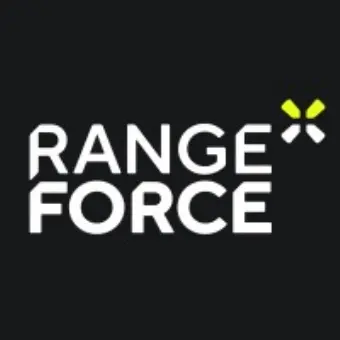Freelance Content Developer

RangeForce
Course Collaboration Initiative
Are you interested in creating an online cybersecurity course but unsure where to start? Do you have the expertise but are concerned about reaching the right audience or building effective lab exercises? Worry no more – we're here to help at RangeForce.
With years of experience in cybersecurity training and upskilling, we understand the challenges and rewards of developing online courses. At RangeForce, we don't just host courses; we empower security experts like you to share your valuable insights and experience with a global audience. Join us in our mission to transform cybersecurity learning, making it more accessible, practical, and impactful.
At RangeForce, we specialize in blending theoretical and interactive, hands-on security training. Our courses align with renowned cybersecurity frameworks like NIST NICE, MITRE ATT&CK, and MITRE D3FEND, ensuring relevance and standardization. Our platform stands out for its interactive modules, offering real-time feedback and practical exercises that prepare learners for real-world scenarios. As we launch our Course Collaboration Initiative, we invite experienced cybersecurity professionals to join us in creating innovative and impactful cybersecurity training content.
We're on the lookout for security professionals with a wealth of experience in various domains. Our aim is to enrich our course offerings with your expertise in areas such as:
- Cloud Security (Azure, AWS, GCP)
- Digital Forensics
- Malware Analysis
- Threat Hunting
- Threat Intelligence
- Incident Response
- Attacker TTP Analysis
- CVEs
- Security Solutions
- Reverse Engineering
- ICS Security
- Detection Engineering
(We may also be open to exploring topics beyond these listed areas.)
As a partner to RangeForce, your role will be to develop both theoretical and interactive training courses and modules. This entails planning, writing, and developing comprehensive content that leverages your specialized knowledge and experience. Join us in shaping the future of cybersecurity training!
At RangeForce, we make developing cybersecurity upskilling content both easy and straightforward. Understanding the complexities and time involved in setting up learning environments, we provide a customizable sandbox environment for you to develop interactive content. This means you won't have to worry about configuring your own labs – we've got that covered. Our platform offers various templates across different infrastructures, equipped with all the necessary tools and resources for building your content. This approach significantly reduces the hassle for experts who want to focus on content creation rather than the technicalities of environment setup, allowing you to concentrate on delivering impactful and practical learning experiences.
Our educational content is structured into Learning Paths, which consist of multiple courses. Each course is further broken down into modules, with each module designed as a standalone unit of learning, typically lasting about 15 minutes. All modules within a course usually share the same base infrastructure or template, ensuring a cohesive learning experience. While we generally focus on developing a complete course at a time, we're also open to single modules for specific content types like CVEs or TTPs. These individual courses or modules can later aggregate into a comprehensive Learning Path.
So how do I get started? Here’s the process for becoming a course development partner with RangeForce:
Explore Free Edition
Start your journey with RangeForce by diving into our Free Edition. This initial exploration is crucial, offering you firsthand experience with our modules, teaching style, and the technological underpinnings of our platform. Understanding these elements will equip you with the knowledge needed to tailor your course proposal effectively.
Submit Proposal
In the Submit Proposal phase, you’re encouraged to present a well-considered plan for a cybersecurity course. While we have highlighted key areas of interest such as Cloud Security, Digital Forensics, and Malware Analysis, among others, we remain open to innovative ideas in other domains.
Your proposal should detail:
- Persona: Define who the course is for and how it meets their development needs e.g SOC Analyst.
- Content: Plan for 5-10 modules, combining theoretical insights with practical tasks and challenges.
- Description: Give an overview of what the course will cover and the competencies it aims to build.
- Software and Resources: Identify the tools and resources needed for your course activities.
- Learning Goals: Describe what skills and knowledge learners will acquire by course end.
How to Submit Your Proposal:
- Email Submission: Course plans should be emailed to freelance.devs@rangeforce.com.
- Bamboo Hire Submission: Alternatively, you can upload a link to your course plan in the "Website, Blog, or Portfolio" field in the BambooHR Job application.
Please ensure that your course plans are in Google Doc format and accessible for review.
Initial Meeting
During the Initial Meeting phase, we'll schedule a call at your convenience to discuss your proposal in more detail. This meeting serves as a two-way street: it's an opportunity for you to gain a deeper understanding of RangeForce and our approach to cybersecurity training, and for us to learn more about your background, expertise, and the unique perspective you bring to the table. This collaborative discussion is crucial in ensuring that your course idea is well-aligned with both our platform's standards and your professional strengths.
Proposal Review
In the Proposal Review phase, following our discussion, our experts will examine your proposal to determine our interest in the topic and understand the technical necessities for the course. We'll consider how well your ideas fit within our framework and may recommend adjustments to ensure the best possible outcome. During this stage, we'll also discuss the compensation details for developing the modules, with the aim of establishing a clear and fair partnership.
Onboarding
In the Onboarding phase, once your proposal is green-lit and compensation terms are agreed upon, we'll integrate you into our development environment. An onboarding call will be arranged to give you a comprehensive overview of our systems and resources, and guide you through the module development process. You'll gain access to our dedicated documentation space designed for partners, which contains all the documentation and information you'll need for a smooth course creation journey with us.
Template Testing
Before embarking on full-scale module development, you'll engage in Template Testing. This step allows you to experiment with our module templates, ensuring the hands-on activities you envision can be performed and yield the expected outcomes. It's a practical way to validate your course ideas and adjust them based on real-world application within our environment.
Module Development
Now the fun part… creating your course! Your main tasks during the Module Development phase will include:
- Collaborative Outline and Metadata Creation: Together, we'll detail your module's structure and requirements, ensuring alignment with the course's learning objectives. This collaboration involves defining descriptions, learning outcomes, keywords, difficulty levels, duration, prerequisites, and creating a comprehensive module outline.
- Writing Module Contents: With our Virtual Teaching Assistant (VTA), you'll write instructional materials, tasks, Q&As, and incorporate visuals.
- Developing Checks and Regression Tests: You'll construct minimal scripts for basic emulation and regression tests to ensure your modules function as intended without getting bogged down in complexity.
- Applying Feedback and Fixes: Refine your modules by implementing fixes based on feedback gathered from internal testing.
Throughout, we’ll provide the support you need to make module development a smooth and rewarding process.
Compensation
In the Compensation phase, once you've implemented all necessary feedback and fixes, you can submit an invoice for the completed module and receive payment.
Most importantly, as a creator, you will receive full credit for your work. Your name will be prominently listed alongside the content, offering an excellent opportunity to promote your expertise and grow your professional reputation.
If you wish to learn more about RangeForce or explore our platform, including our courses and modules, we invite you to check out our free edition. It's a great way to get acquainted with the kind of content and interactivity you can expect from collaborating with us.
